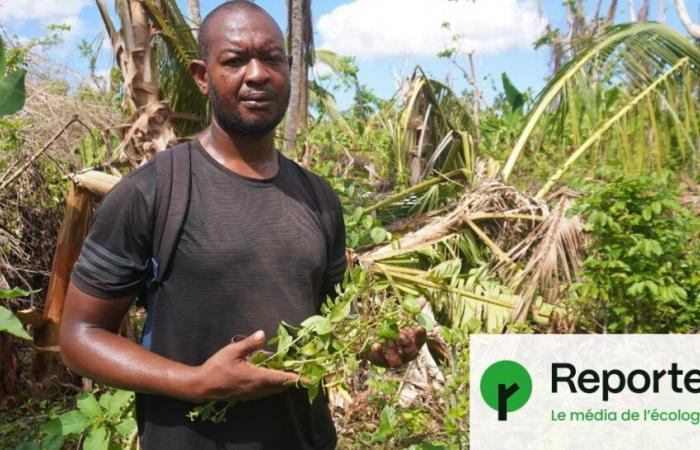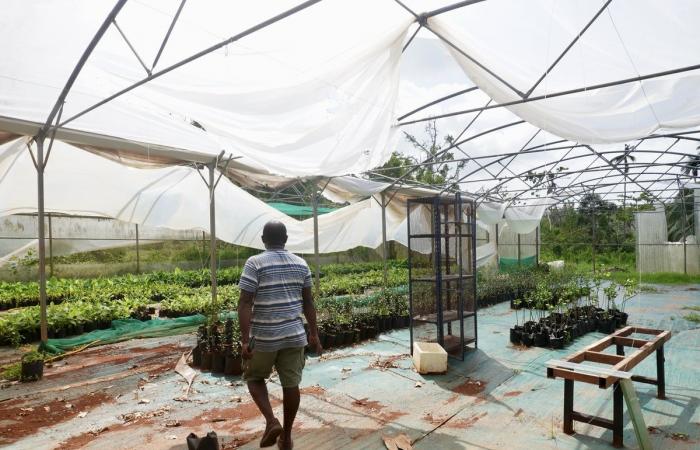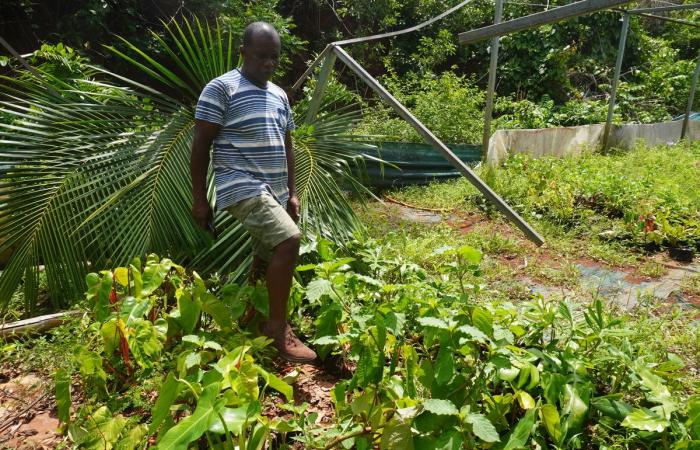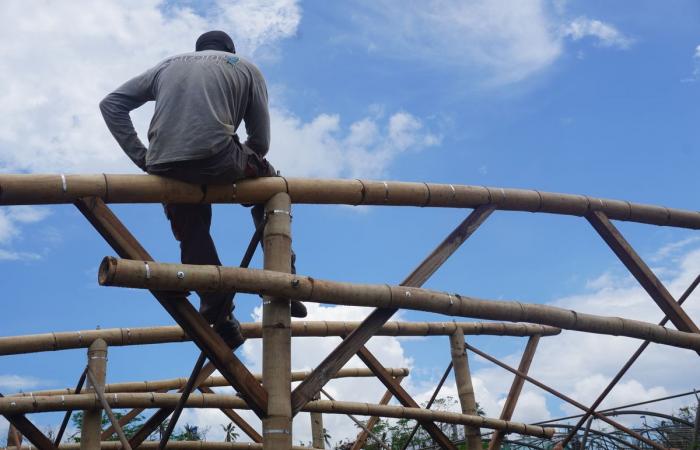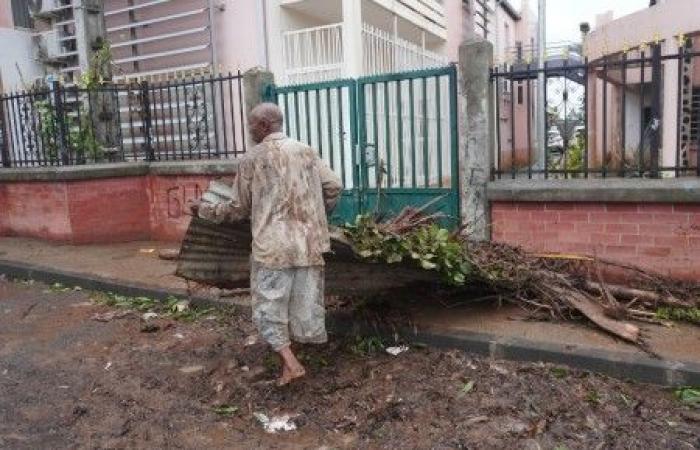Mayotte, report
Five years. This is the number of years of work that were reduced to nothing by the passage of Cyclone Chido on the Soihir Babae Ali plot. On December 14, the 2 hectares that he had taken over from his father in the village of Miréréni, south of Mayotte, were almost completely destroyed. But a month after the cyclone, Mayotte suffered the Dikeledi storm, causing significant flooding. Double punishment for farmers like him. « They lost everything »deplores Combo, a nurseryman based in Soulou, in the north of the island.
Fashioned on the traditional model of the Mahorais garden, bringing together a wide variety of crops ranging from medicinal plants to fruit trees, the land of Soihir Babae Ali, still luxuriant at the beginning of December, is nothing more than a field of plant ruins . « Of the 1,000 coconut trees I had, there are only 500 left. I had more than 3,000 banana plants. Most of them are dead »he takes stock, showing the trunks and branches littering his land.
Soihir Babae Ali uses his land for his own consumption, like many Mahorais, but also to sell the fruit of his labor. « Just with bananas, I could earn 2,000 to 3,000 euros per month »he gives as an example. While he was counting on Ramadan in March to sell his crops, he already warned his customers that orders could not be delivered. « I replanted cassava, but it will take six months to grow. Bananas, 2 or 3 years old. »
« If I have to start from scratch, I will »
From Chido, Soihir Babae Ali must fight against the weeds, for whom this cemetery is an unexpected playground. « With the rainy season and the sun beating down now that there are no more trees, it grows very quickly »notes the man who clears everything by hand and with a machete, the rest of his equipment having flown away during the storm. A job that is all the more tiring without plant cover to shelter from the heat. But that's not what worries him the most. « The plants will suffer, there is no more shade, it's getting hot. In the dry season, it will be even worse. »
Faced with the Herculean task of clearing and replanting everything, the Mahorais is not discouraged. « If I have to start from scratch, I will »he says. While the smoke from burning is felt more often than usual since the cyclone, Soihir Babae Ali is not tempted by this technique to quickly revive his plants. « I cut the weeds and leave them on the ground. It makes a natural fertilizer without damaging my soil »supports the farmer.
Soihir Babae Ali contemplates his devastated plot, in the village of Miréréni.
© Marine Gachet / Reporterre
In Soulou, Combo knew what awaited him when he went to see his plot, three days after the cyclone. Today, its greenhouse is still gutted. « I had enough seeds to produce 3,500 plants. Everything flew away »describes the nurseryman. Fortunately, the wind left him with a few banana plants, enough to fulfill part of his orders. For the rest, he will have to draw on his stocks planned for next year, of which he is still awaiting delivery from Corsica. « Farmers need my work even more »insists the one who works every day to save his farm of just under 1 hectare.
« It all burned »
The damage doesn't make his job any easier. Without power since the storm, its watering system is HS. The pipe that allowed him to draw water from the river upstream was broken. He is reduced to collecting the rain which stagnates on the remains of his tarpaulins. Next to his greenhouse, his destroyed shade house no longer protects his flowers from the sun. « Look, all that has burned since then »he calls out, pointing to his monsteras, petunias, purslanes and marigolds which have begun to wilt among the weeds having, as in the field of Soihir Babae Ali, invaded the surface.
Combo lost part of its banana plants in the storm as well as a large quantity of seeds.
© Marine Gachet / Reporterre
If the nurseryman wants to repair his infrastructure, it costs several thousand euros. « Anyway, for now, all the equipment is out of stock »he whispers. So before investing in importing tarpaulins, sheets and nets, he prefers to wait until the hurricane season ends. « We see it with Dikeledi who did other damageillustrates the operator by showing plants drowned by the passage of the tropical storm on January 12. I have always been sure that I could do my job. But today, I doubt. »
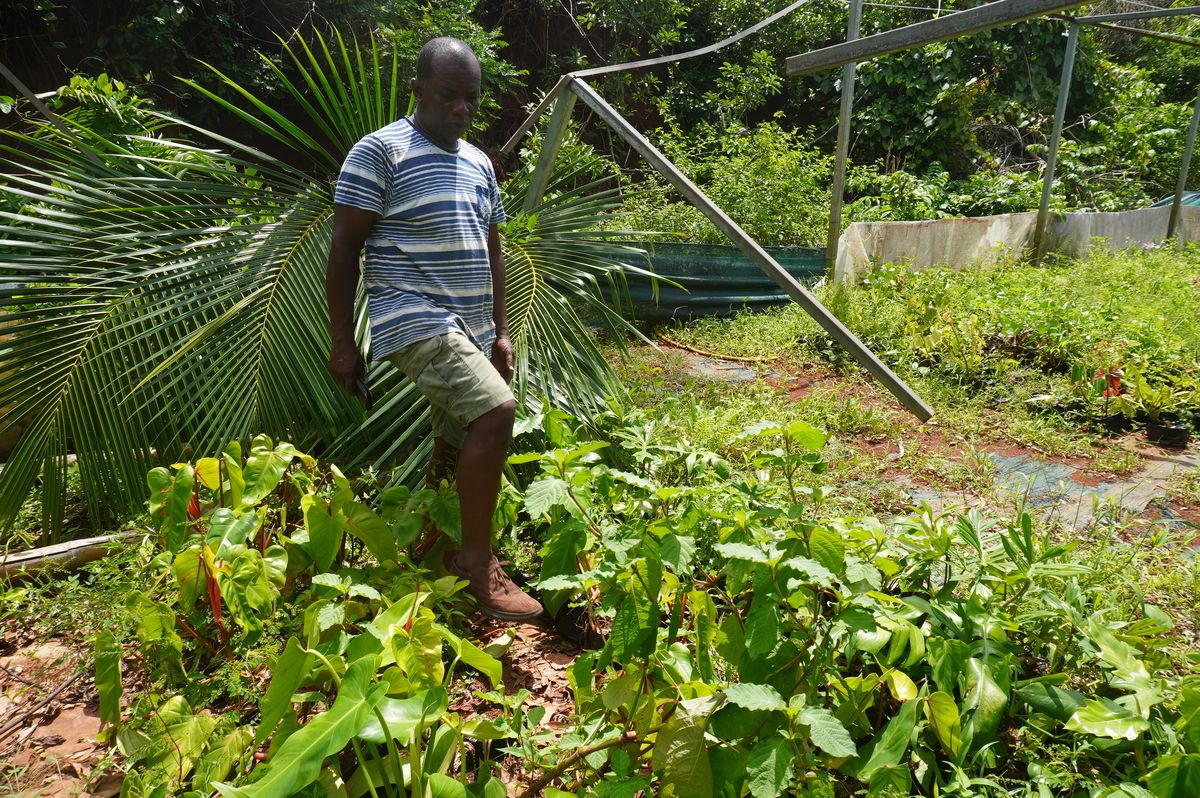
Combo shows his flowers and plants burning in the sun since his shade house was destroyed.
© Marine Gachet / Reporterre
A necessary resourcefulness
The Chamber of Agriculture, Fishing and Aquaculture of Mayotte (Capam), whose elections have been postponed for a year to guarantee continued crisis management, cannot yet access all the farms to draw up a assessment, with certain routes still being obstructed.
For his part, Ange Dusom, overseas president of the Young Farmers union (AND), began writing reports the day after the calamity. Of the 22 farms he visited in one month, he noted 90 % of greenhouses destroyed, 80 % of poultry decimated and all ruminant buildings damaged. An observation corroborated by the Peasant Confederation, at the head of Capam. « The animals are either dead or wandering »regrets Christophe Van Hoorne, overseas representative of the union.
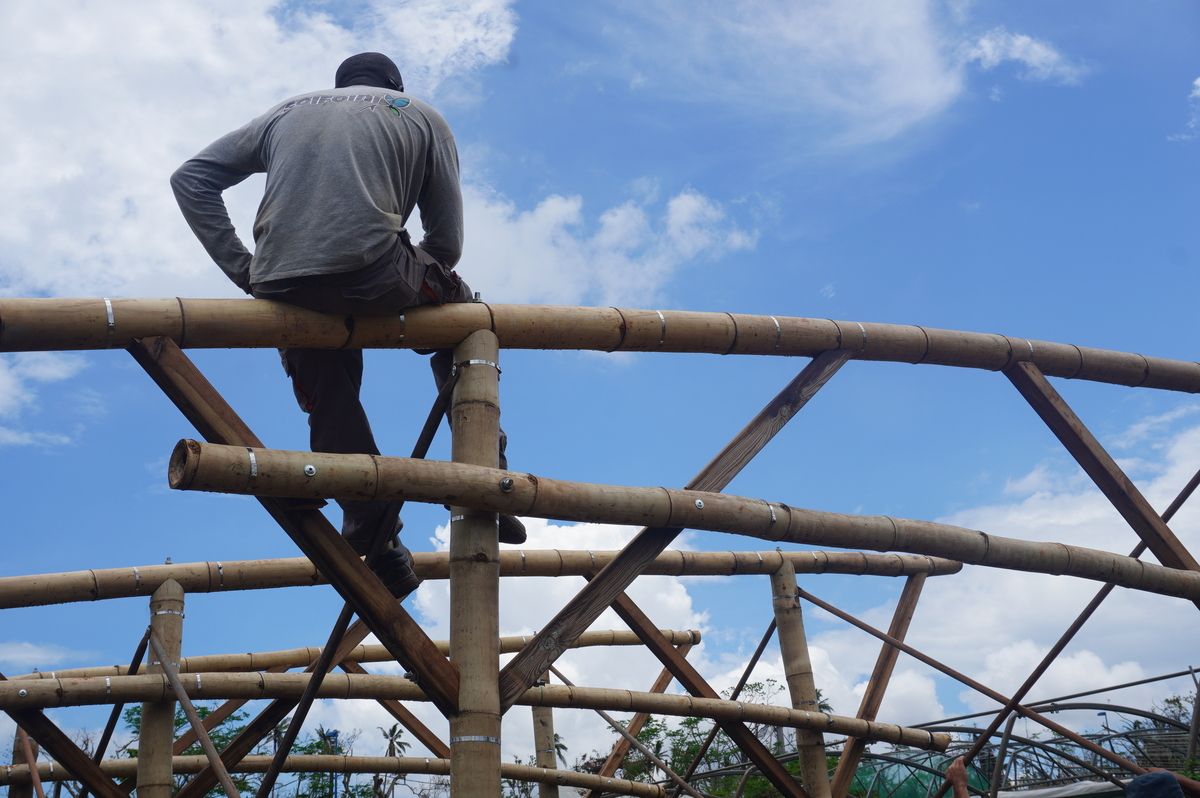
At the Coconi agricultural high school, in the center of the island, trainees began building an emergency bamboo greenhouse as part of training provided in part by the Lilo Bambou association.
© Marine Gachet / Reporterre
Faced with the emergency, the State's response is slow. « For now it's just meetings »deplores Ange Dusom, whose union negotiated with the AND–FNSEA to bring in 100 chainsaws to open up farms with the help of the departmental council. Resourcefulness is indeed necessary. In the week following Chido, the Coconi agricultural high school, which lost 5 of its 7 greenhouses, took advantage of training financed by European funds to build an emergency bamboo one and replant quickly.
The local association Lilo Bambou, which partly facilitated this training and launched a fundraiser for the project, also plans to recover the untreated bamboo that fell during the storm to multiply the experience in the area, even if the first greenhouse remains to be completed. . « This will last two years, time to build something more solid »explains Louis Dossal, co-manager of the association.
Insufficient measures
The emergency bill for Mayotte does not reassure Ange Dusom. « Of the 22 articles, there is not much for the agricultural world, to say the least. »he laments. Only article 18 mentions the sector to provide for a suspension of social contributions until March 31. Among the measures of the Mayotte standing plan, agricultural social security (MSA) had to pay 1,000 euros to the 1,350 affiliated farms, no later than January 15.
Insufficient help for Christophe Van Hoorne. « There are many more farmers in Mayotte, even if some do not contribute to the MSA and another is not declareddefends the Overseas referent of the Peasant Confederation, specifying that 4,500 farmers have a Siret number in the department. This part is essential to feed Mayotte. »
On January 13, he met the Prime Minister to ask that 1,000 euros be paid to each Mahorese farm for a year, since it will take eight months for the first productions to leave the farms. He also asks that the restoration of greenhouses or the transport of replacement animals be covered at 100 %. On the side of ANDAnge Dusom initially demands that all the aid which was already due to farmers, such as that planned for the drought of 2023, should finally be paid. « Some were due last year »he recalls.
A slowness which does not raise much hope in the farms. However, for Combo, it is the time taken to receive this aid which will determine the future of its production. « In a hurry, there is no time. »
-legend

